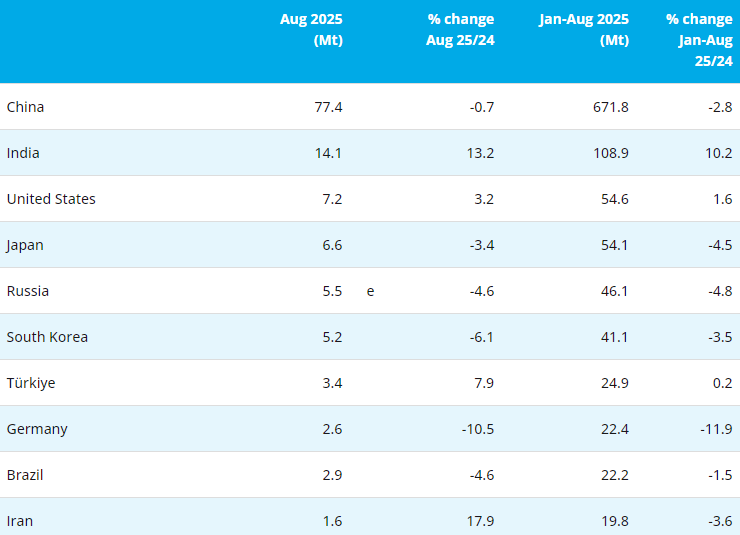[ferro-alloys.com] Markets head into the week ahead, battered by trade war fears, and the selling pressure could continue if there are no signs of a breakthrough.
Two events on the trade front could impact markets. There is speculation that progress will be announced on renegotiations of the North American Free Trade Agreement, when President Donald Trump, Mexican President Enrique Pena Nieto and Canada Prime Minister Justin Trudeau meet at the Summit of the Americas in Peru at the end of the week.
The other event is a much-anticipated speech by Chinese President Xi Jinping on Tuesday, which traders are watching for any reference to the trade dispute with the U.S.
Relations between the U.S. and China appeared to deteriorate, after Trump threatened more tariffs Thursday night, on an additional $100 billion in Chinese goods. A Chinese Ministry of Commerce official Friday responded with a promise to fight back with a "major response."
"This is right now more a war of words than it is a trade war. Obviously Trump got his feathers ruffled by China saying they would match everything we do, and to the end. It calls into question whether this is the bluff that's being called," said Art Hogan, chief market strategist at B. Riley FBR. "It really feels like that's the case. What we really need to hear about is that there are negotiations."
Trump administration officials, who had been attempting to calm markets, were unable to on Friday as they provided no assurance on negotiations with China, and Treasury Secretary Steven Mnuchin conceded this could be the start of a trade war though that's not the goal.
"The harder the U.S. pushes on China, the more likely the U.S. may compromise on NAFTA," said Marc Chandler, global head of foreign exchange strategy at Brown Brothers Harriman. "Trump needs a trade win and the way we bullied South Korea can't be duplicated. It would strengthen his hand because it would show America that his way is working. By strengthening his hand domestically, he would be sending a message to China that the country is united."
Chandler and others said that would be a positive for markets. "That would lift investors' spirits," he said, adding Canada and Mexico may be able to push harder on specific issues since the U.S. now wants a deal. The U.S. reportedly agreed to change a demand to include 85 percent NAFTA car parts in all cars.
The Dow lost 572 points, or 2.3 percent Friday, ending at 23,932 but it was down just 0.7 percent for the week. The S&P 500 lost 2.2 percent Friday, to 2,604 and was down 1.3 percent for the week.
The coming week marks the start of the first quarter earnings period, which analysts have been hoping would take market focus away from trade and put it on strong corporate profits, expected to be up more than 18 percent for S&P 500 companies.
BlackRock reports Thursday, and JPMorgan Chase, Citigroup and Wells Fargo report Friday.
There is also important inflation data in the coming week. CPI is reported Wednesday, and core consumer prices are expected to be up 0.2 percent, or 2.1 percent on an annualized basis, above the Fed's goal for 2 percent inflation. PPI is expected Tuesday.
But it could be the trade headlines that matter most, and an advancement of NAFTA could help the markets. Mnuchin said that there was progress being made on NAFTA, but analysts do not expect a completed deal by the end of the week.
"I think right now the bottleneck is making sure the technical details are signed. The announcement they're planning would be much more that there's an idea for an agreement. They have a basis for an agreement which doesn't mean they have an agreement," said Juan Carlos Hartasánchez, Albright Stonebridge Group senior director.
source: from internet
- [Editor:Wang Linyan]



 Save
Save Print
Print Daily News
Daily News Research
Research Magazine
Magazine Company Database
Company Database Customized Database
Customized Database Conferences
Conferences Advertisement
Advertisement Trade
Trade

















Tell Us What You Think